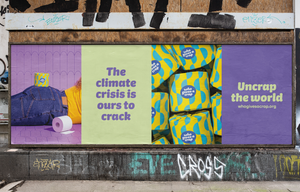Introduction
In today's dynamic and competitive corporate landscape, businesses increasingly recognise the significance of aligning their operations with social and environmental responsibility. The concept of a "social dividend" has emerged as a powerful tool for companies seeking to create a positive impact beyond their core business activities.
This blog post delves into the concept of a social dividend, examines companies that have successfully implemented it, and explores whether all businesses should consider adopting it.
What is a social dividend?
A social dividend is a concept rooted in the belief that corporations are responsible for contributing positively to society beyond their traditional profit-making objectives. It extends beyond formal corporate social responsibility (CSR) initiatives and philanthropic efforts. A social dividend implies that companies should actively engage in actions and investments that generate long-term benefits for society, the environment and stakeholders while positively impacting their bottom line.
The key components of a social dividend
- Environmental Sustainability: Companies can reduce their ecological footprint, adopt sustainable practices and invest in clean energy solutions. By doing so, they mitigate environmental risks and align with global efforts to combat climate change.
- Social Responsibility: Corporations should take responsibility for their impact on society. This includes fair labour practices, diversity and inclusion, and ethical supply chain management. It's about ensuring that the company's operations do not harm society.
- Community Engagement: Engaging with local communities can foster goodwill and long-lasting relationships. Corporations can support education, healthcare and infrastructure projects that directly benefit the communities in which they operate.
- Ethical Governance: Transparency and ethical governance are integral to the social dividend concept. Companies should ensure their leadership and decision-making processes are accountable, transparent and aligned with moral principles.

Companies leading the way
Several companies have embraced the concept of a social dividend and integrated it into their corporate strategies. These corporations are exemplary models for communication managers looking to implement similar initiatives.
1. Patagonia
The outdoor clothing and gear company Patagonia is renowned for its unwavering commitment to environmental sustainability. They invest some of their sales in environmental causes, including conservation efforts and ecological activism. Patagonia's transparent approach to corporate responsibility has garnered the trust and loyalty of its customer base.
2. Salesforce
Salesforce, a pioneer in cloud computing, has prioritised social responsibility through its "1-1-1" model. They donate 1% of product, 1% of equity and 1% of employee time to charitable initiatives. This dedication to social impact has benefited various communities and contributed to Salesforce's success in attracting top talent and customers.
3. Unilever
A consumer goods giant, Unilever has embedded sustainability into its core business strategy. They strive to make sustainable living commonplace by reducing their environmental footprint, promoting gender equality and improving livelihoods for millions of people. Unilever's sustainable brands, such as Dove and Ben & Jerry's, resonate with socially conscious consumers.
4. MSC
MSC Shipping, the global leader in maritime logistics, embraces the social dividend concept by incorporating environmental sustainability, social responsibility and community engagement into its operations. The company is actively reducing its greenhouse gas emissions, promoting diversity and inclusion within its workforce, and supporting educational and healthcare initiatives in the communities it serves.
5. Givaudan
Givaudan, a renowned fragrance and flavour company, demonstrates its commitment to the social dividend by focusing on environmental sustainability, social responsibility, and community engagement. They are dedicated to reducing their ecological footprint, ensuring ethical sourcing and labour practices, and supporting educational and social programs in their communities.
Should all companies offer a social dividend?
Whether all companies should offer a social dividend is complex and requires careful consideration. While the concept holds tremendous potential for positively impacting society and enhancing corporate reputation, it may not be feasible or suitable for every organisation. Here are some factors to consider:
1. Industry and context
The feasibility of implementing a social dividend varies by industry. Some industries, like technology and consumer goods, are well-suited for such initiatives, while others may face unique challenges. Companies should consider their industry and context when deciding whether to adopt a social dividend approach.
2. Size and resources
Medium to large corporations are often better positioned to allocate resources to social dividend initiatives. Smaller businesses with limited resources may find it more challenging to implement such programs effectively. However, even smaller companies can find ways to incorporate social responsibility into their operations, such as partnering with local organisations or donating a portion of their profits to charity.
Stakeholder expectations
Understanding the expectations and values of stakeholders is crucial. If customers, employees, investors and regulators expect a company to prioritise social responsibility, then pursuing a social dividend may be a strategic imperative. Companies should engage with their stakeholders to understand their expectations and priorities and then align their social dividend initiatives accordingly.
Long-term vision
Companies should align their social dividend initiatives with their long-term vision and strategic goals. A genuine commitment to social responsibility should not be a mere PR stunt but an integral part of the corporate DNA. Companies should carefully consider how their social dividend initiatives can contribute to their long-term success and integrate them into their overall business strategy.
The concept of a social dividend challenges corporations to go beyond profit and consider their impact on society, the environment and stakeholders. While companies like Patagonia, Salesforce, Unilever, MSC and Givaudan have demonstrated the value of a social dividend, its applicability to all companies varies based on industry, resources, stakeholder expectations and long-term vision. Communication managers have a crucial role in shaping the narrative and conveying the authentic commitment of their organisations to a more responsible and socially conscious future.
Companies that embrace the social dividend concept can reap significant benefits, including enhanced reputation, increased customer loyalty and a more engaged workforce. Moreover, by aligning their operations with sustainable practices and social responsibility initiatives, companies can help create a more equitable and environmentally sustainable future for all.
If you are considering implementing a social dividend at your company, several resources are available to help you get started. Several organisations can provide guidance and support.
We hope this blog post has given you a better understanding of the social dividend concept. If you have any questions, please feel free to comment below.
We would also like to add that the social dividend concept is still evolving, and there is no one-size-fits-all approach. Companies should experiment and find what works best for them. The most important thing is to be genuine and transparent about their social responsibility efforts.






